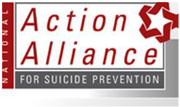OJJDP Launches New Online University Web Site
OJJDP has launched the OJJDP Online University, a central source for the juvenile justice community to easily connect with training and technical assistance. The Online University is a one-stop shop for training courses, Webinars, training and technical assistance events, and materials that OJJDP’s training and technical assistance providers and partners have developed. Key features include:
- A calendar consolidating upcoming training and technical assistance events in the juvenile justice field.
- "Quick" links to training and resources, including Webinars, online and classroom trainings, and publications.
- New browse capabilities.
OJJDP’s Online University may be accessed at the Web site of the National Training and Technical Assistance Center.
 May 2014 Issue of NJJEC Bulletin Available
May 2014 Issue of NJJEC Bulletin Available
The National Juvenile Justice Evaluation Center (NJJEC), funded by OJJDP, has released the May 2014 issue of its newsletter, the NJJEC Bulletin. This issue includes articles on the Justice Research Series produced by the National Institute of Justice and OJJDP, a summary of an evaluation of a behavioral health initiative for youth, a Spotlight on the SHAPE program in Memphis, TN, and NJJEC activities and upcoming events.
OJJDP-Supported National Gang Center Creates Video on Risk Factors for Gang Involvement
 The National Gang Center has released a new video describing the individual, family, school, peer-group, and community risk factors that are associated with joining a gang. The video, “Why Youth Join Gangs,” includes contributions from researchers, practitioners, and young people who were previously involved in gangs. Supported by the Bureau of Justice Assistance and OJJDP, the National Gang Center contributes to reductions in gang-related crime and violence by providing national leadership; information to policymakers and researchers; and resources, training, and technical assistance to practitioners nationwide.
The National Gang Center has released a new video describing the individual, family, school, peer-group, and community risk factors that are associated with joining a gang. The video, “Why Youth Join Gangs,” includes contributions from researchers, practitioners, and young people who were previously involved in gangs. Supported by the Bureau of Justice Assistance and OJJDP, the National Gang Center contributes to reductions in gang-related crime and violence by providing national leadership; information to policymakers and researchers; and resources, training, and technical assistance to practitioners nationwide.
Action Alliance for Suicide Prevention Makes Available New Tools for Justice-Involved Youth
 Youth in juvenile justice residential facilities have nearly three times the rate of suicide compared with their peers in the general population. The National Action Alliance for Suicide Prevention’s Youth in Contact With the Juvenile Justice System Task Force, co-led by OJJDP Administrator Robert L. Listenbee, has released a set of comprehensive suicide prevention resources to help administrators and staff who work with youth involved in the juvenile justice system. The resources include a fact sheet series on juvenile suicide; a literature review of research on suicidal ideation and behavior; information on screening and assessment for suicide prevention; a guide for suicide prevention protocols; and information on mental health and juvenile justice systems collaboration.
Youth in juvenile justice residential facilities have nearly three times the rate of suicide compared with their peers in the general population. The National Action Alliance for Suicide Prevention’s Youth in Contact With the Juvenile Justice System Task Force, co-led by OJJDP Administrator Robert L. Listenbee, has released a set of comprehensive suicide prevention resources to help administrators and staff who work with youth involved in the juvenile justice system. The resources include a fact sheet series on juvenile suicide; a literature review of research on suicidal ideation and behavior; information on screening and assessment for suicide prevention; a guide for suicide prevention protocols; and information on mental health and juvenile justice systems collaboration.
OJJDP and ACF To Examine Data on Dual-System Involved Youth
 On May 29, 2014, OJJDP announced plans for a collaborative research effort with the Department of Health and Human Services' Administration for Children and Families (ACF) to examine the prevalence of dual-system involved youth. In fiscal year 2015, OJJDP will solicit proposals to investigate how state and local jurisdictions’ juvenile justice and child welfare data can be used to develop estimates of how many youth are involved in both systems. This project will identify jurisdictions in which juvenile justice and child welfare systems are currently sharing information for services and treatment. Findings will inform the development of strategies to improve data capacity and data sharing at the state and local levels. OJJDP’s four-part Webinar series, “Improving Outcomes for Multi-System Involved Youth Who Cross Over Between Child Welfare and Juvenile Justice,” may be accessed online.
On May 29, 2014, OJJDP announced plans for a collaborative research effort with the Department of Health and Human Services' Administration for Children and Families (ACF) to examine the prevalence of dual-system involved youth. In fiscal year 2015, OJJDP will solicit proposals to investigate how state and local jurisdictions’ juvenile justice and child welfare data can be used to develop estimates of how many youth are involved in both systems. This project will identify jurisdictions in which juvenile justice and child welfare systems are currently sharing information for services and treatment. Findings will inform the development of strategies to improve data capacity and data sharing at the state and local levels. OJJDP’s four-part Webinar series, “Improving Outcomes for Multi-System Involved Youth Who Cross Over Between Child Welfare and Juvenile Justice,” may be accessed online.
 OJJDP Observes National Children’s Mental Health Awareness Day
OJJDP Observes National Children’s Mental Health Awareness Day
On May 8, 2014, OJJDP joined the Substance Abuse and Mental Health Services Administration in observance of National Children's Mental Health Awareness Day. This annual event provides an opportunity for communities, federal programs, and organizations to educate their constituents, through events and activities, about the impact of positive mental health on a child's healthy development from birth.
On May 6, OJJDP Administrator Robert L. Listenbee offered remarks at the Awareness Day launch event. Mr. Listenbee highlighted the need for developmental approaches to addressing the needs of youth in the juvenile justice system. “The harsh, punitive practices too often found in the juvenile justice system do not meet the developmental needs of youth,” he said.
OJJDP Recognizes National Foster Care Month
 On April 30, 2014, President Obama issued a proclamation recognizing May as National Foster Care Month, continuing a national observance that began in 1988. Almost 400,000 children and youth are in foster care today. This month-long observance, supported by the Children's Bureau of the U.S. Department of Health and Human Services and partners, honors the role of foster families, child welfare professionals, teachers, and other individuals in finding permanent homes for children and youth in foster care.
On April 30, 2014, President Obama issued a proclamation recognizing May as National Foster Care Month, continuing a national observance that began in 1988. Almost 400,000 children and youth are in foster care today. This month-long observance, supported by the Children's Bureau of the U.S. Department of Health and Human Services and partners, honors the role of foster families, child welfare professionals, teachers, and other individuals in finding permanent homes for children and youth in foster care.
In recognition of National Foster Care Month, OJJDP has re-released its four-part Webinar series “Improving Outcomes for Multi-System Involved Youth Who Cross Over Between Child Welfare and Juvenile Justice.”
 OVC Video Series Addresses Children’s Exposure to Violence
OVC Video Series Addresses Children’s Exposure to Violence
The Office for Victims of Crime has released four videos in the online series Through Our Eyes: Children, Violence, and Trauma. The series of eight videos addresses the needs of children exposed to violence and victimization. The new videos highlight intervention in schools, innovations in juvenile justice, addressing violence in the home, and a call to action. The other four videos in the series focus on public awareness, evidence-based treatment, child advocacy strategies, and community-based approaches. Resource guides and posters are also available.
Juvenile Drug Court Publications Available From NCJFCJ
 The National Council of Juvenile and Family Court Judges (NCJFCJ) has released new publications to help guide the field toward recommended practice and to assist juvenile drug court professionals with implementation efforts. Developed under OJJDP’s National Juvenile Drug Court Training and Technical Assistance Project, the guides cover a range of topics: Starting a Juvenile Court: A Planning Guide; 7 Easy Steps to Improving Your Juvenile Drug Court; Engaging Schools in the Juvenile Drug Court: Promising Strategies From the Field; and Practical Tips to Help Juvenile Drug Court Teams Implement the 16 Strategies in Practice. To read and download these and other OJJDP-funded publications, visit NCJFCJ’s Web site.
The National Council of Juvenile and Family Court Judges (NCJFCJ) has released new publications to help guide the field toward recommended practice and to assist juvenile drug court professionals with implementation efforts. Developed under OJJDP’s National Juvenile Drug Court Training and Technical Assistance Project, the guides cover a range of topics: Starting a Juvenile Court: A Planning Guide; 7 Easy Steps to Improving Your Juvenile Drug Court; Engaging Schools in the Juvenile Drug Court: Promising Strategies From the Field; and Practical Tips to Help Juvenile Drug Court Teams Implement the 16 Strategies in Practice. To read and download these and other OJJDP-funded publications, visit NCJFCJ’s Web site.
 Juvenile Justice Education Programs Are Substandard, SEF Study Finds
Juvenile Justice Education Programs Are Substandard, SEF Study Finds
With awareness growing that schools are disciplining and suspending minority students at high rates, a report released by the Southern Education Foundation (SEF) provides powerful evidence that young people placed in the juvenile justice system—predominantly minority males incarcerated for minor offenses—are receiving a substandard education.
The report, Just Learning: The Imperative to Transform Juvenile Justice Systems into Effective Educational Systems, argues that education for the 70,000 students in custody on any given day is setting them even further back. Drawing on the most recently available data from the nation's largest database on teaching and learning in juvenile justice systems, the report finds that the quality of learning programs for incarcerated youth has had "little positive, enduring impact on the educational achievement of most children and youth in state custody."
Report Examines State-Level Drug Law Reforms Since 2009
 In Drug War Détente? A Review of State-level Drug Law Reform, 2009–2013, the Vera Institute of Justice’s Center on Sentencing and Corrections examines the nearly 50 bills that have been passed by more than 30 states to reform laws pertaining to mandatory penalties, drug sentencing schemes, early release mechanisms, community-based sanctions, and collateral consequences. By providing concise summaries of representative legislation in each area, the review aims to be a practical guide for policymakers in other states and the federal government looking to enact similar reforms.
In Drug War Détente? A Review of State-level Drug Law Reform, 2009–2013, the Vera Institute of Justice’s Center on Sentencing and Corrections examines the nearly 50 bills that have been passed by more than 30 states to reform laws pertaining to mandatory penalties, drug sentencing schemes, early release mechanisms, community-based sanctions, and collateral consequences. By providing concise summaries of representative legislation in each area, the review aims to be a practical guide for policymakers in other states and the federal government looking to enact similar reforms.
NCCD Releases Series of Reports on Youth Deincarceration
 The National Council on Crime & Delinquency (NCCD) has produced a series of reports developed from its national study on deincarceration. The study involved interviews with key stakeholders, listening sessions in five states, a national convening of juvenile justice leaders, and the compilation and analysis of county-level data from five jurisdictions. States across the country have seen dramatic reductions in the number of youth incarcerated in detention halls, camps, and state secure facilities. Despite an overall reduction of incarcerated youth, much higher percentages of youth of color remain under formal supervision and in state secure facilities.
The National Council on Crime & Delinquency (NCCD) has produced a series of reports developed from its national study on deincarceration. The study involved interviews with key stakeholders, listening sessions in five states, a national convening of juvenile justice leaders, and the compilation and analysis of county-level data from five jurisdictions. States across the country have seen dramatic reductions in the number of youth incarcerated in detention halls, camps, and state secure facilities. Despite an overall reduction of incarcerated youth, much higher percentages of youth of color remain under formal supervision and in state secure facilities.
